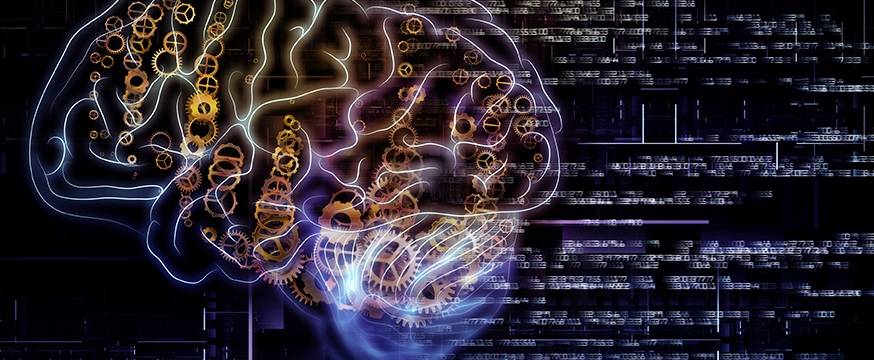
Towards a science of learning
Research 7 Aug 2013 5 minute readRecent discoveries in neuroscience, psychology and education have raised new questions about how learning takes place, emphasising the need for inter-disciplinary collaboration for a new ‘science of learning’, as Sacha DeVelle explains.
Towards a science of learning
Education is about enhancing learning, while experimental psychology and cognitive neuroscience investigate the mental processes involved in learning. Collectively, these three disciplines are finding answers to some of the key questions about learning.
Developing a deeper understanding of how the brain functions has the potential to transform the nature of education in the same way that our deeper understanding of biology has transformed medicine.
Using brain imaging methods, cognitive neuroscience has answered many of the ‘where’ questions – determining which brain areas contribute to which behaviours. Of more interest to educators, though, is the ‘how’ question – how does the brain solve a particular task placed in front of it?
Experimental psychology
There is a plethora of experimental psychology research on human learning, addressing issues such as working memory, motivation, attention and emotion, language development, learning difficulties and child development. Many of the findings from that research have implications for all levels of education, from the learner to the teacher to the policy maker.
For example, research that investigates how further practice strengthens memory can inform decisions about the content and extent of lesson planning. In one experiment, students were asked to memorise a set of items before predicting their level of performance immediately after the memorising session or after one, two or three additional memorising sessions. Students underestimated their performance gain due to further memorising by up to 33 per cent. In another experiment, students were asked to learn a list of items and were told they would be tested either immediately, a day later or a week later. Students were very good at predicting their performance in the immediate test but were woeful in anticipating the detrimental effect that the passage of time would have on their performance.
Such experiments suggest that students underestimate the benefits of additional study, and overestimate the stability of memories they have acquired. However, there is no research as yet that examines whether the findings hold true in the complex classroom environment in the same way they do in the simple environment of the laboratory.
The next step is therefore to conduct further research in classroom settings, using materials that resemble those used in the classroom, while maintaining the control and reproducibility of the experimental approach. This is the purpose of the experimental classrooms that form the core of the new Science of Learning Research Centre.
Experimental classrooms
The Science of Learning Research Centre, recently established under the Australian Research Council’s Special Research Initiatives scheme, enables the cross-disciplinary study of human learning. It brings together researchers in education, neuroscience and cognitive psychology from three lead institutions, the University of Queensland, the University of Melbourne and ACER, plus a number of partner institutions.
The two experimental classrooms at the core of the centre – in Brisbane and Melbourne – will serve as conduits that connect laboratory based research with educational practice in a two-way information exchange (see Figure 1).
Figure 1: The experimental classroom as the connection between classroom and laboratory.
The classroom in Brisbane will permit the monitoring of brain activity, eye movements and peripheral physiology while small groups of learners engage in a variety of different tasks. This will enable the assessment of cognitive processes as well as of performance measures. It will provide insights into the manner in which, for instance, students’ engagement with study material changes as they become more proficient at a given task, or the manner in which different types of feedback enhance learning.
The classroom in Melbourne will permit audio-visual monitoring of teacher-student and student-student interactions as they occur in a realistic classroom setting. This will enable analysis of both social interactions that characterise a learning situation and those that influence the learning process. It will provide insights, for instance, into how teachers and students respond during what they respectively perceive as the most critical moments of a particular lesson.
These experimental classrooms enable the investigation of a number of promising approaches to learning that connect basic psychological research and educational practice. Returning to the memory experiments discussed earlier, for example, it would be possible to investigate how to overcome the limitations of memory so that students become better predictors of their own performance.
Connecting neuroscience, psychology and education
Developing a deeper understanding of how the brain functions has the potential to transform the nature of education in the same way that our deeper understanding of biology has transformed medicine. The Science of Learning Research Centre will provide opportunities for research that will enhance our understanding of human learning to provide a basis for educational practice.
Further information:
This article is based on the conference paper, ‘From Experimental Psychology to a Science of Learning’, delivered by ACER Principal Research Fellow Dr Sacha DeVelle with University of Queensland Senior Research Fellow and Director of the Science of Learning Research Centre Professor Ottmar Lipp, at the 2013 ACER Research Conference on the theme ‘How the Brain Learns: What lessons are there for teaching?’ on 6 August.
The conference proceedings, including full conference papers, are available from the ACER research repository.
